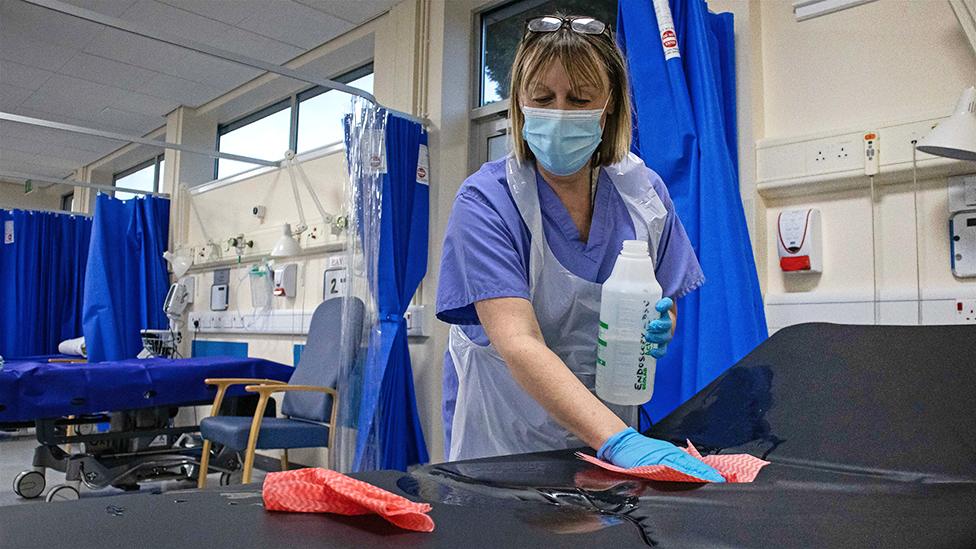Letchworth hospice donations keep frail patients out of hospital
- Published
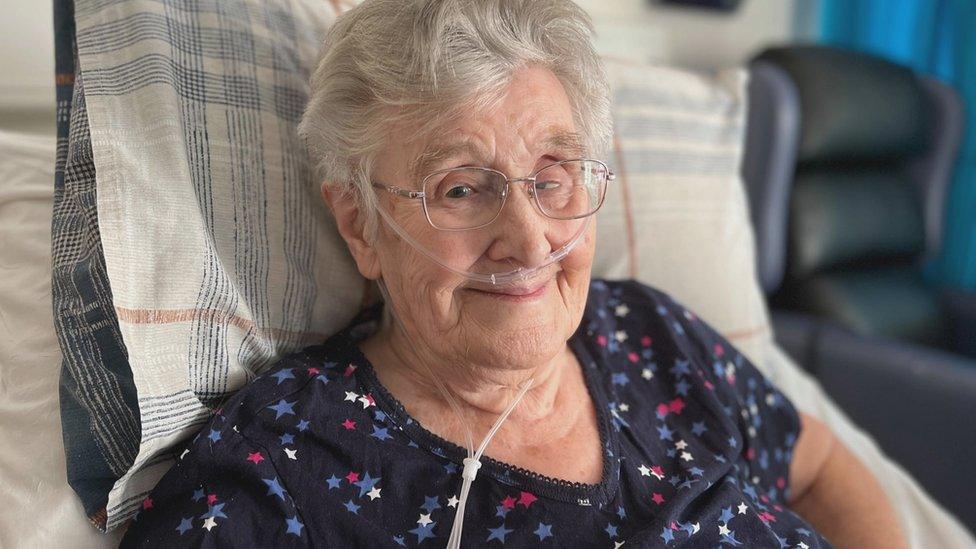
Connie Yearley said her son was initially worried when she told him she was being transferred to a hospice
A hospice has launched the first scheme of its kind in England, providing beds and ongoing care to frail people who do not have a terminal diagnosis.
Garden House Hospice Care in Letchworth, Hertfordshire, wanted to reduce the time patients spent in hospital and prevent stays altogether.
The hospice has financed it through a £300,000 fundraising campaign.
One of the first patients, Connie Yearley, 86, said it was "an excellent idea".
Hospices traditionally help patients towards the end of their lives. However, the new service helps those living with long-term conditions that need medication, patients who have had falls, and helps people with urinary tract infections or who need care after becoming ill.
Mrs Yearley, who used to be a midwife, was transferred from The Lister Hospital in Stevenage after contracting bacterial pneumonia. She is also on the waiting list for hernia repair.
"I've lost mobility and muscle tone, and getting back on my feet doing normal things is going to be a great help," she said.
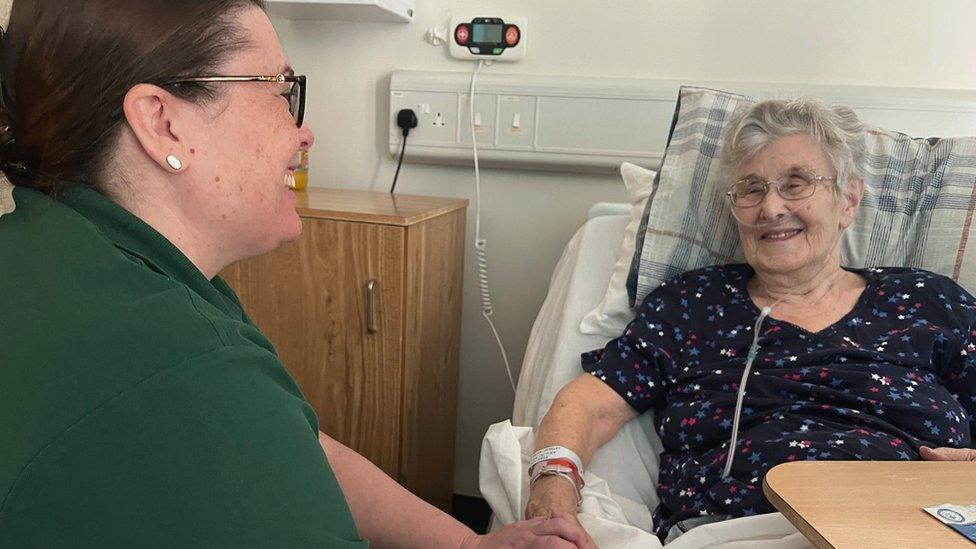
Occupational therapists and physiotherapists work with patients to get them mobile enough to go home
If it can attract funding, the hospice hopes to provide ongoing appointments to manage patients, reducing the need for GP visits.
Mrs Yearley said it was "very, very difficult to get a GP appointment".
She revealed "she would sooner die than go to A&E again" after a nine-hour wait on a separate occasion last year for a blocked stoma.
In partnership with Lister Hospital, nurses from Garden House visit frailty wards and the emergency department every weekday to pick out patients to safely transfer to hospice beds.
Garden House has a team of occupational therapists and physiotherapists for rehabilitation, but another patient, 81-year-old Robert King, said more should be done within the NHS to help patients.
"Years ago people would never go straight home - they'd go to a nursing home to rehabilitate. Somehow that's all disappeared."
He believed more ideas like this would "give the NHS a better chance".
But a report by the County Councils network, external said that employing more physiotherapists to help the frail become mobile in their own homes was just as important as beds.
Donations will fund Garden House's service until April.
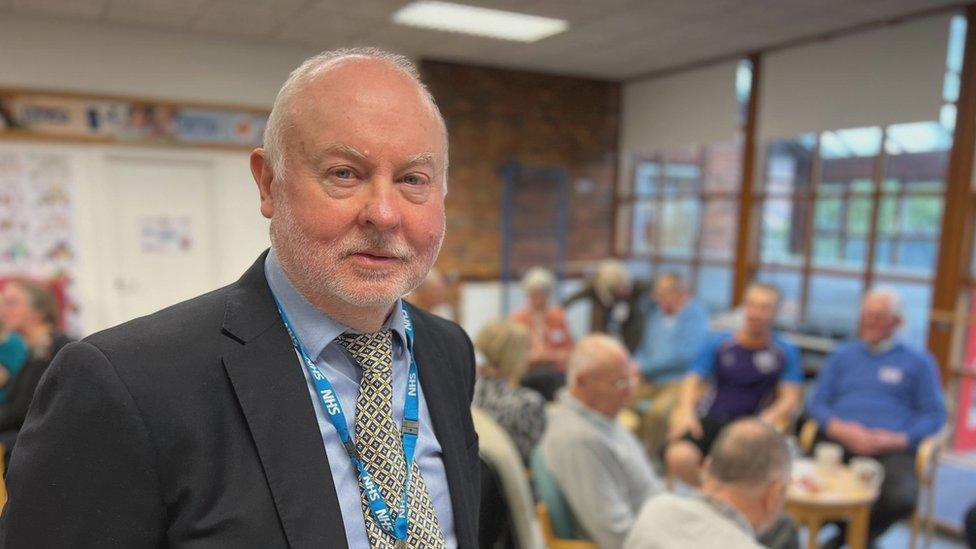
Dr Mark Andrews said older people who stayed in hospital tended to decline because they were in an unfamiliar environment
Health officials in Hertfordshire and west Essex said population data predicted in the 25 years up to 2043 there would be a 73% increase in people aged over 85.
The local Integrated Care Board oversees healthcare. One of its clinical managers, Dr Mark Andrews, described the statistic as "quite worrying".
He said: "This older population with long-term conditions is going to need a lot more support."
When asked why the NHS was not funding the hospice scheme, he said the system was under "huge financial pressure".
The hospice also runs weekly exercise groups, using them to identify those needing help.
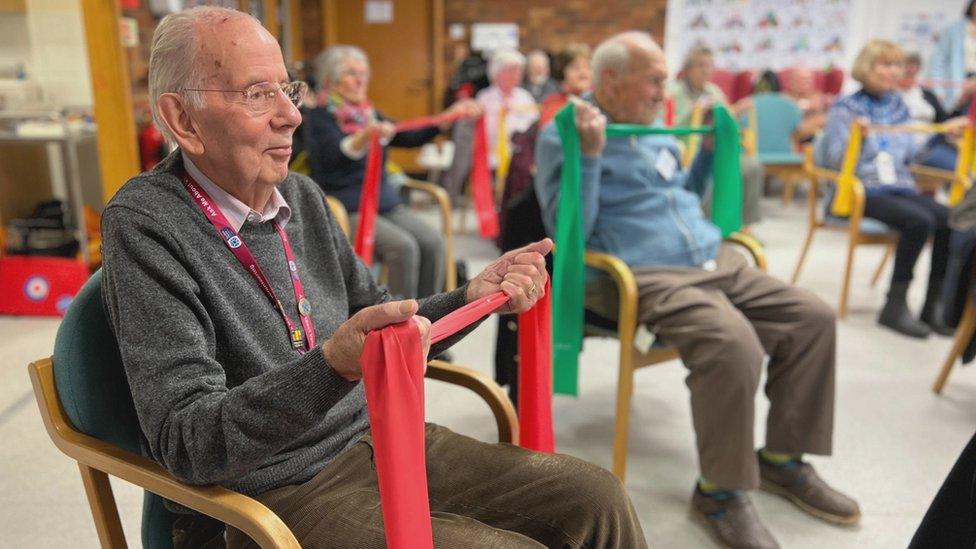
The frailty exercise groups act as a social space where friends chat and issues can be shared
Irene Park, 87, said: "I came here this morning and someone said 'you look really well' - it's because we come here. There's a guy here who's 100 and he can do more than I can."
Pat Lade, 85, who is recovering from a mini stroke, added: "It gets me out, because I live on my own.
"You sit in a chair all day and you just stiffen up. It is important to keep yourself going, as I don't want to end up in a home or hospital."
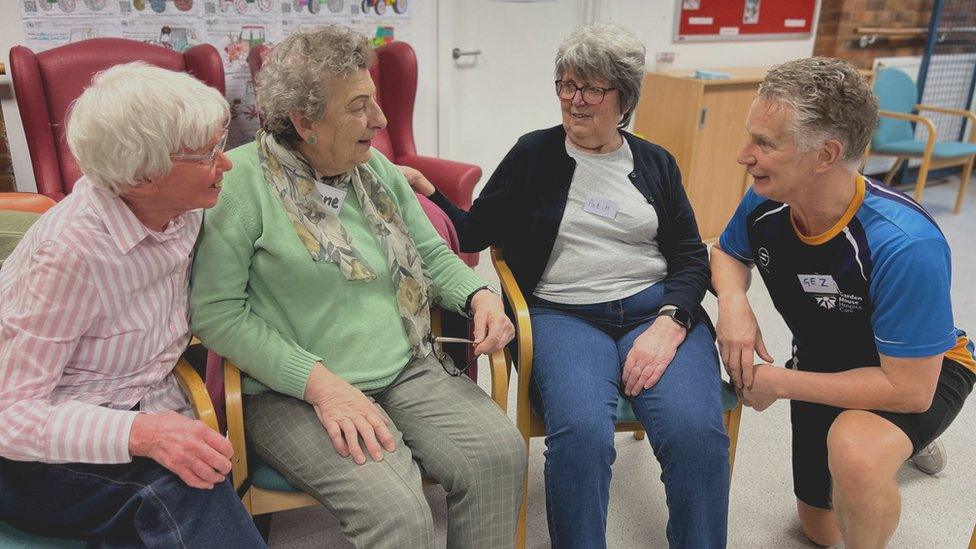
(From left to right) Pat Lade, Irene Park and Pat Hankin said they wanted to stay fit and independent
Hospice chief executive Lisa Hunt believed there were thousands of local patients with long-term conditions who visited hospital about 15 times a year.
"By the age of 60, some of us can have as many as eight health conditions, including asthma, diabetes, high blood pressure or heart failure, and often they do not know where to turn," she said.
"It is therefore an inevitable side-effect of a system where people with frailty are not being supported, that it's the frail often blamed for bed-blocking and filling up A&E every winter."
Garden House is the first hospice to provide a specific frailty service incorporating inpatient beds, exercise groups and ongoing care.
The Hospice UK charity said frailty was a cause of death in older people, external, and those people were less likely to be helped by hospices than advanced cancer patients.
It has been running smaller pilot projects across England to change that.

Follow East of England news on Facebook, external, Instagram, external and X, external. Got a story? Email eastofenglandnews@bbc.co.uk, external or WhatsApp 0800 169 1830
- Published27 October 2023
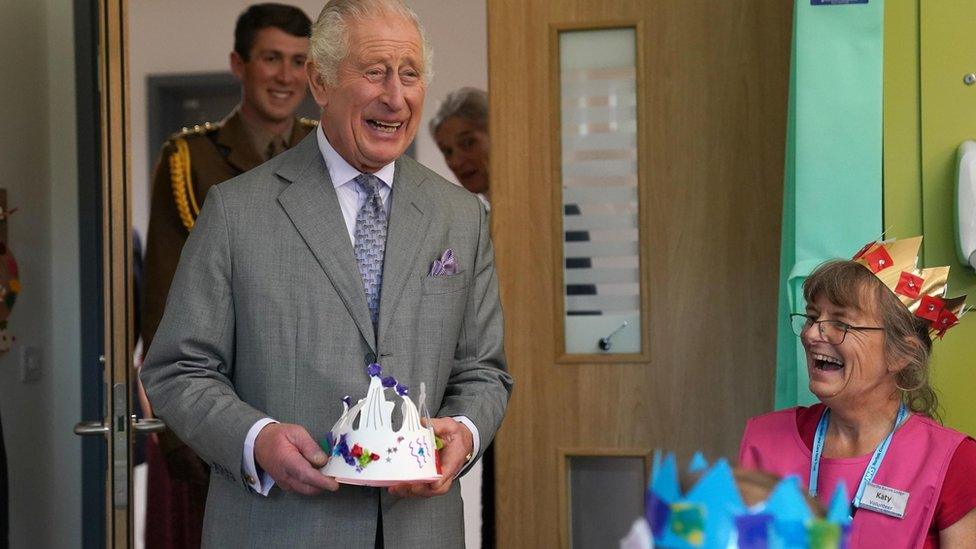
- Published28 September 2023
- Published6 June 2023
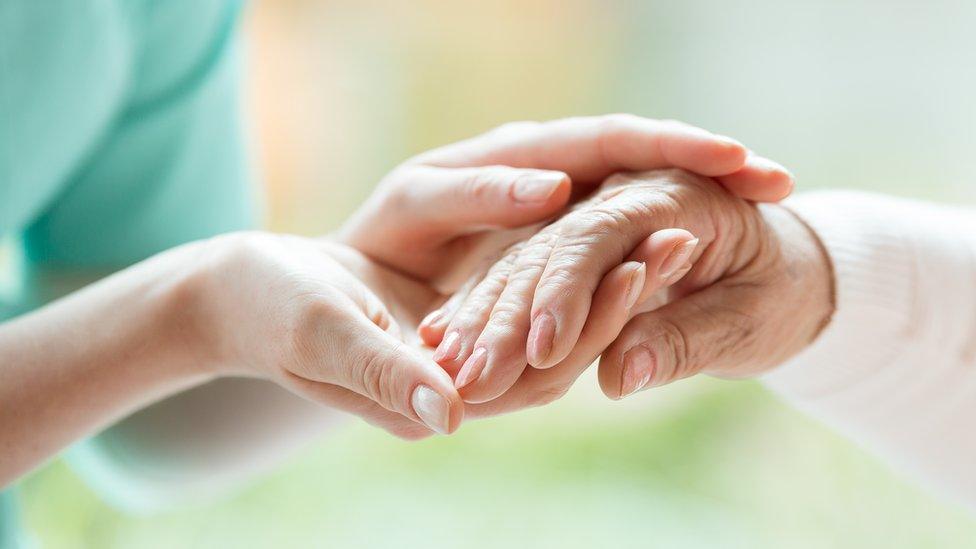
- Published16 January 2023
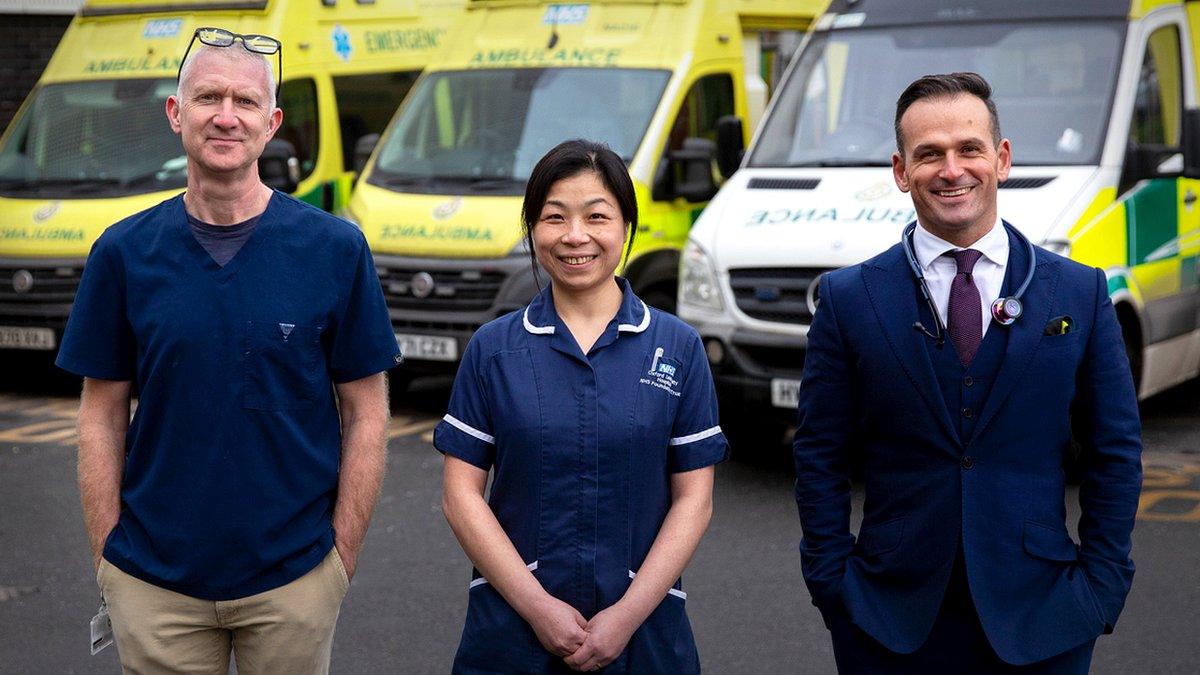
- Published9 January 2023
